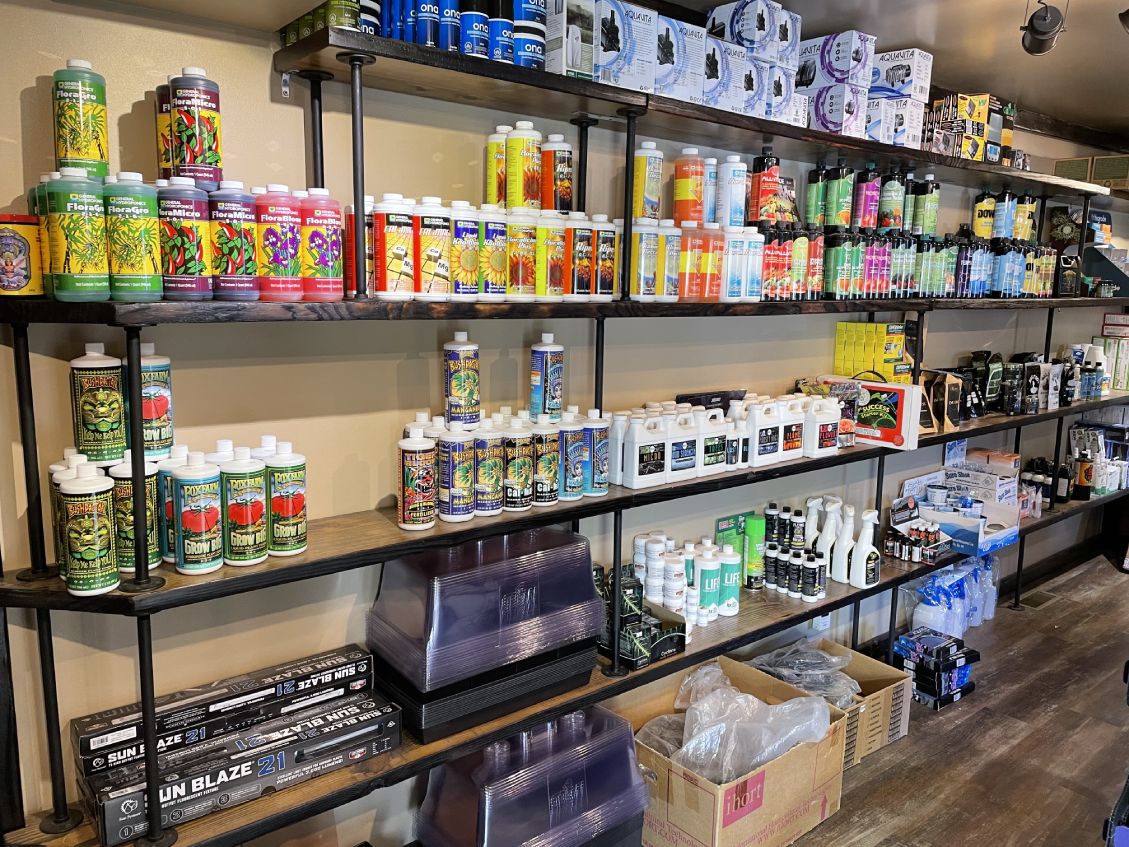Using the Power of Hydroponics: a Deep Study Uses and Different Kinds
In the realm of contemporary farming, hydroponics has actually become an approach that challenges traditional farming practices by offering a water-efficient and space-saving option. The use of hydroponic systems opens up a globe of opportunities for growing plants in varied atmospheres, inevitably influencing food manufacturing and sustainability. As we navigate via the complex landscape of hydroponics, exploring its different kinds and applications, a deeper understanding of its possible to revolutionize farming practices and address international food protection problems starts to unravel.
Advantages of Hydroponic Farming
Undoubtedly, the benefits of hydroponic farming are coming to be increasingly identified in modern-day farming practices. Hydroponic farming uses countless benefits over conventional soil-based agriculture. One of the primary advantages is water effectiveness; hydroponic systems consume to 90% much less water compared to traditional farming approaches. This reduction in water usage is critical in combating water shortage concerns around the world.
Additionally, hydroponic farming enables for better control over nutrient degrees, resulting in faster plant development and higher yields. By providing essential nutrients straight to the plant roots, hydroponic systems advertise healthier and much more robust plant growth. Additionally, the regulated setting of hydroponic systems decreases the danger of pests and conditions, minimizing the demand for hazardous pesticides and herbicides.

Usual Kinds Of Hydroponic Solutions
One widespread type is the Deep Water Culture (DWC) system, where plant origins are submerged in a nutrient option. The Ebb and Circulation system, also recognized as Flooding and Drainpipe, regularly floodings the plant origins with nutrient remedy prior to draining it. Wick systems, the easiest type of hydroponics, make use of a wick to passively provide vitamins and mineral service to the plant origins.
Nutrient Movie Strategy (NFT) System

One of the vital benefits of the NFT system is its water effectiveness. The Indoor Earthworm. Given that the nutrient remedy is recirculated in a closed system, this technique makes use of considerably much less water contrasted to conventional dirt farming. In addition, the NFT system is space-efficient, making it optimal for interior farming or in locations with restricted room for typical farming
However, the NFT system calls helpful site for cautious monitoring and maintenance to make certain the constant circulation of water and nutrients. Any type of disturbance in the flow can promptly affect plant wellness. Overall, the NFT system uses a efficient and lasting means to grow plants hydroponically, particularly for crops that flourish in well-oxygenated root atmospheres.
Deep Water Society (DWC) System
Relocating from the Nutrient Movie Strategy (NFT) system, the Deep Water Society (DWC) system is a hydroponic approach that involves putting on hold plant origins directly in a nutrient option. Unlike NFT, where origins are constantly exposed to a thin movie of nutrient solution, DWC plants have their roots submerged in a reservoir loaded with aerated nutrient water. The roots hang in the nutrient service, enabling direct uptake of water and essential nutrients.
Among the vital benefits of the DWC system is its simplicity and low upkeep needs. The constant accessibility to oxygen and nutrients promotes rapid development and greater yields. Nonetheless, DWC systems require ample oygenation to stop root rot and ensure optimum nutrient absorption. Normal tracking of pH levels and nutrient focus is important to avoid inequalities that can hurt plant wellness.
Aeroponic System
An innovative method in hydroponics farming, the Aeroponic System utilizes a misting or misting system to supply nutrients directly to plant roots put on hold in the air. This system is understood for its capacity to promote fast development and reliable nutrient uptake due to the straight distribution of nutrients to the origins, permitting the plant to focus its power on growth rather than browsing for nutrients.
Among the essential advantages of aeroponics is its water performance, as the system makes use of considerably less water compared to standard soil-based farming techniques. Furthermore, the precise distribution of nutrients straight to the origins can cause higher yields and faster growth prices. While aeroponics can be extra Read More Here complex to establish and maintain Your Domain Name contrasted to other hydroponic systems, its potential for increased plant development and effectiveness makes it a popular option for hydroponic lovers and industrial farmers seeking ideal outcomes.
Conclusion
In conclusion, hydroponic farming offers many advantages and various types of systems to select from. The Nutrient Film Technique (NFT) system, Deep Water Culture (DWC) system, and Aeroponic system are amongst one of the most common methods utilized in hydroponics. Each system has its own advantages and restrictions, making it important for farmers to carefully consider their requirements and preferences before picking one of the most suitable system for their plants.
Unlike other hydroponic systems where plants are immersed in a nutrient remedy, in the NFT system, the origins are subjected to the water just in a superficial film.Relocating from the Nutrient Movie Strategy (NFT) system, the Deep Water Culture (DWC) system is a hydroponic approach that entails suspending plant origins straight in a nutrient remedy.An innovative method in hydroponics farming, the Aeroponic System utilizes a fogging or misting system to provide nutrients straight to plant origins put on hold in the air. The Nutrient Movie Technique (NFT) system, Deep Water Society (DWC) system, and Aeroponic system are amongst the most usual methods used in hydroponics. Each system has its very own benefits and restrictions, making it necessary for farmers to carefully consider their demands and preferences before picking the most ideal system for their plants.
Comments on “The Indoor Earthworm Process: Your Key to Flourishing Plant Kingdom Through Planting”